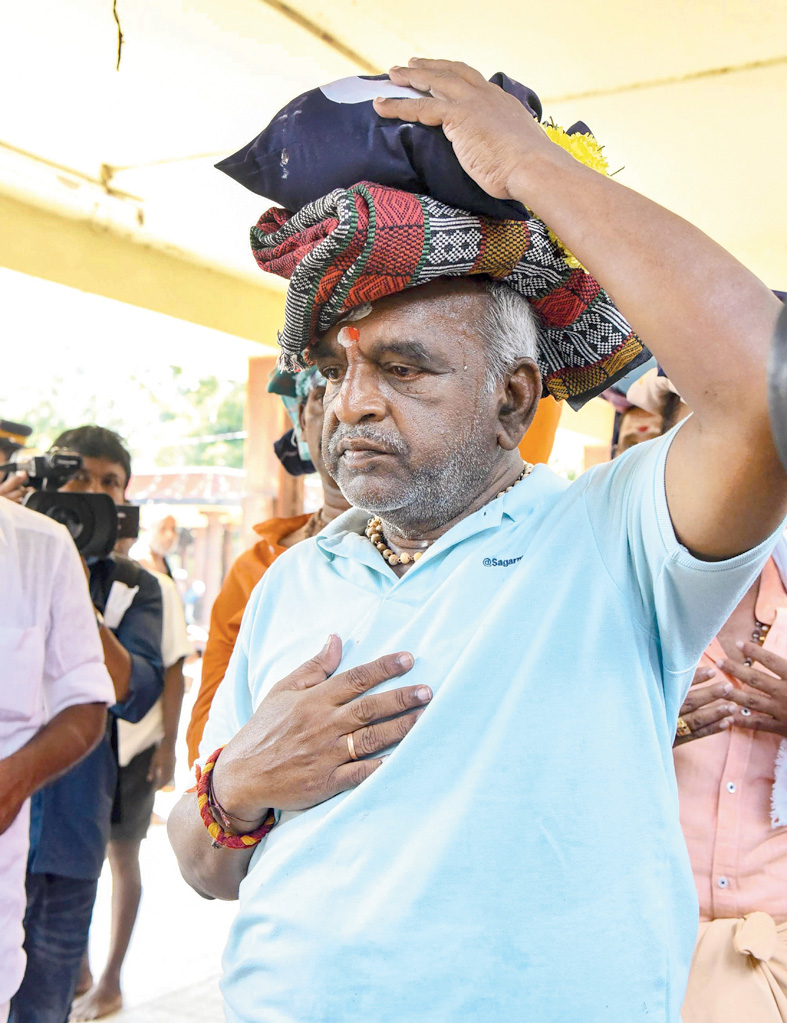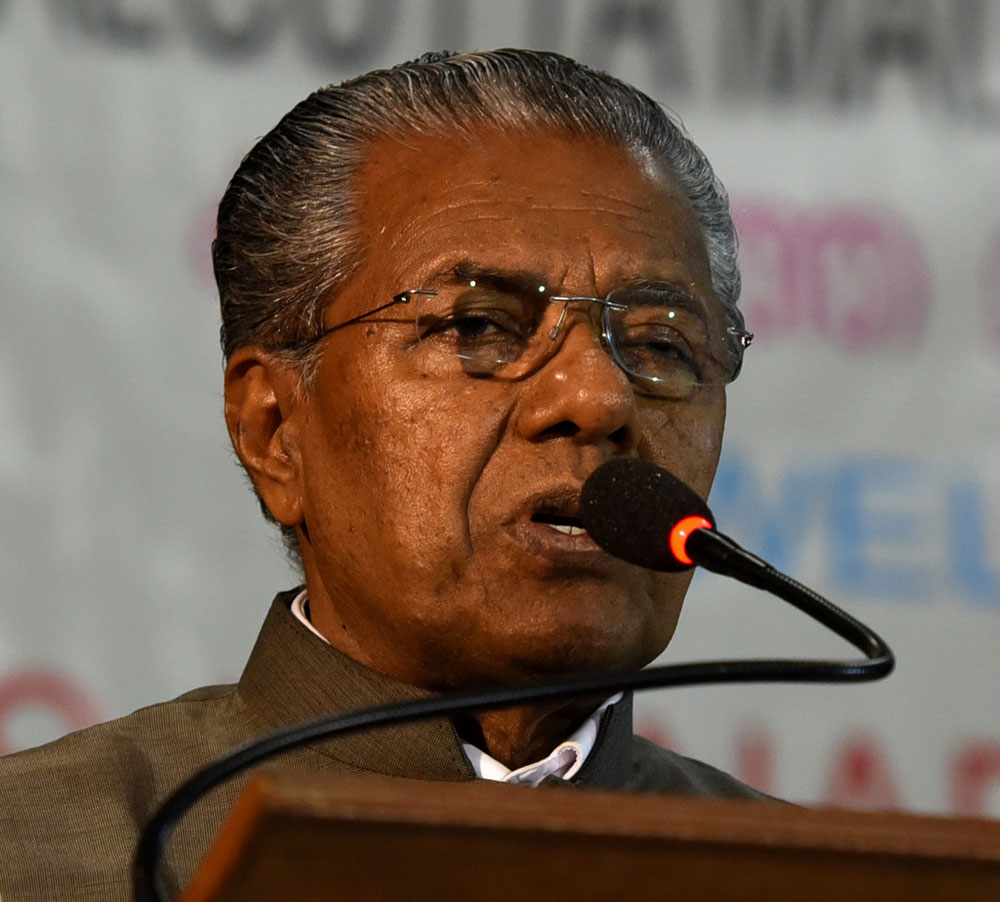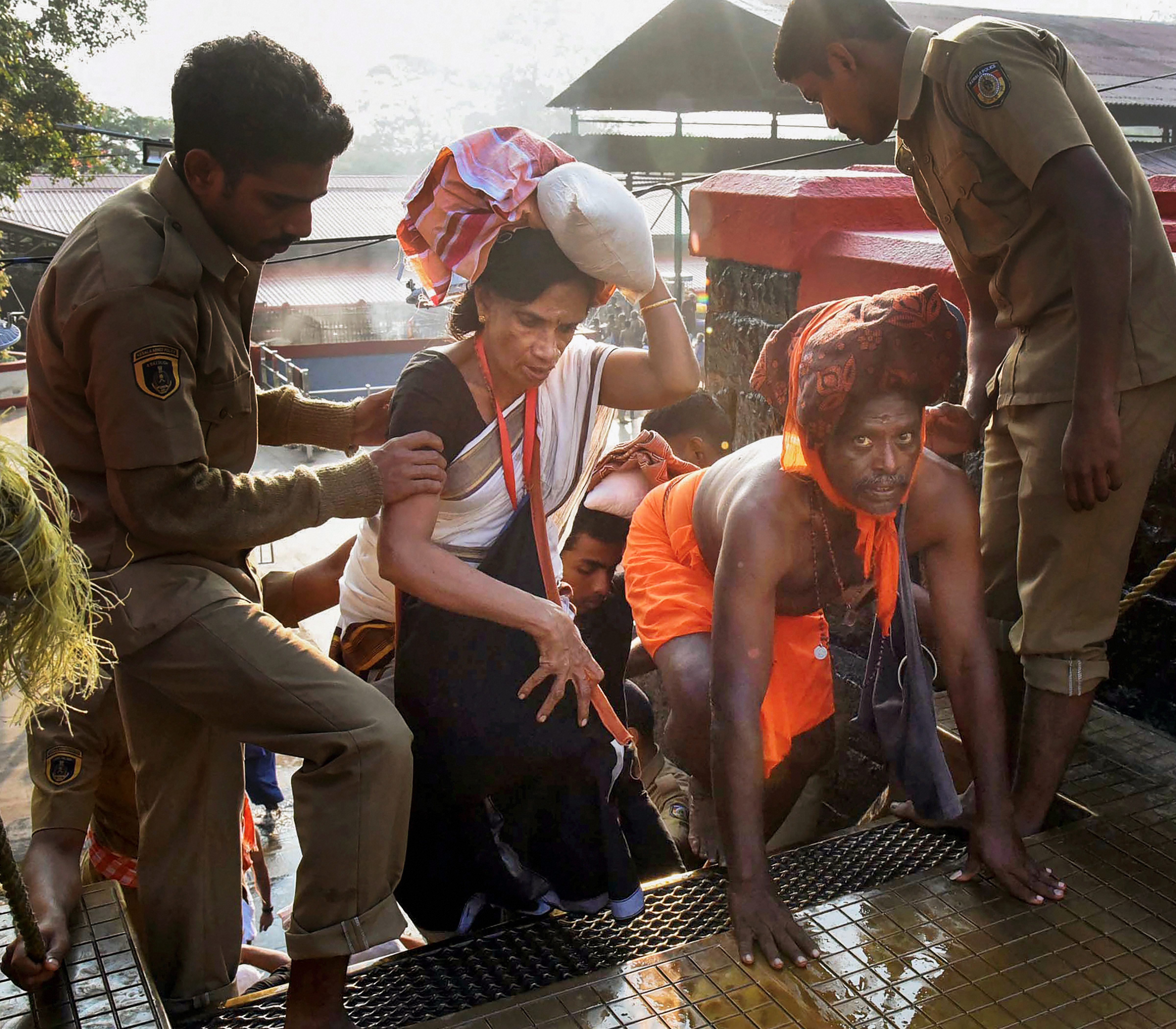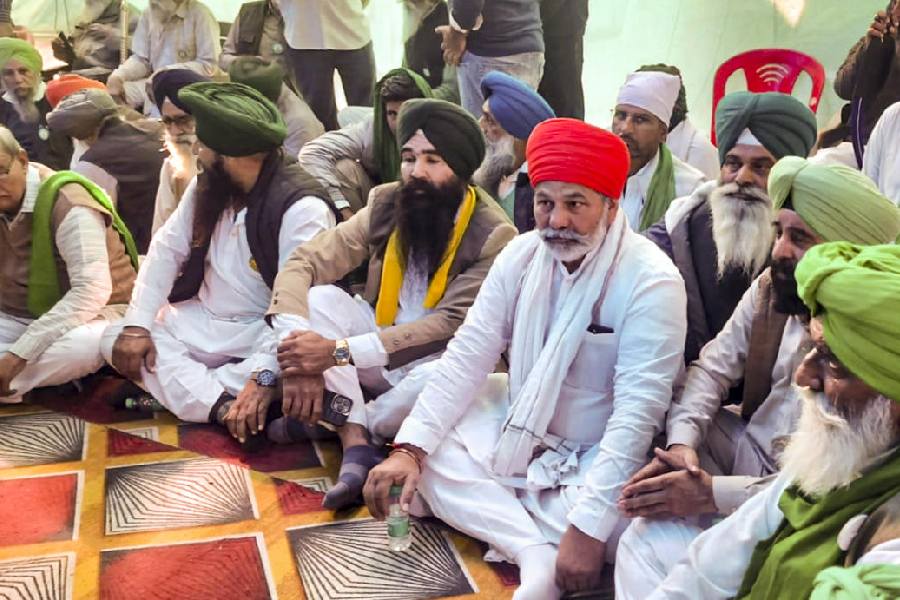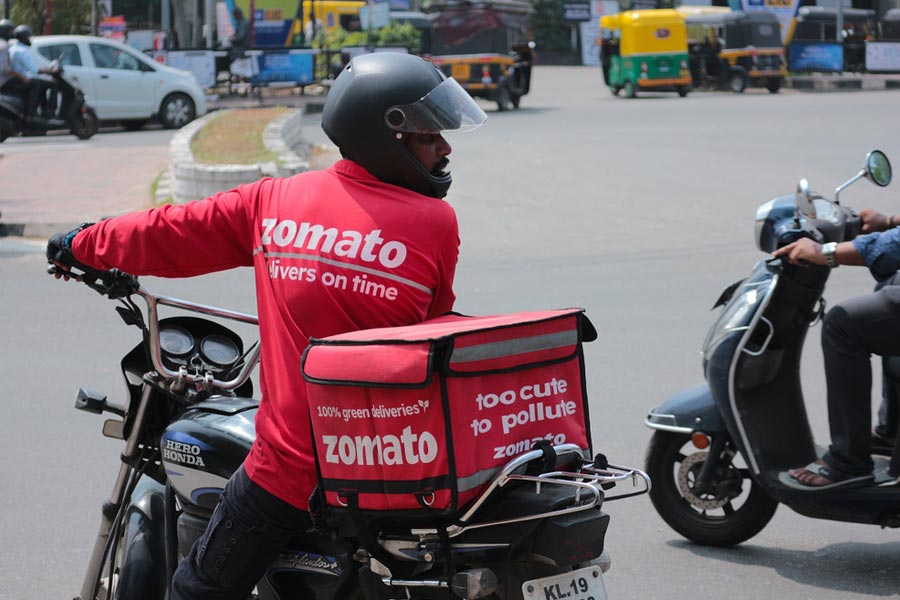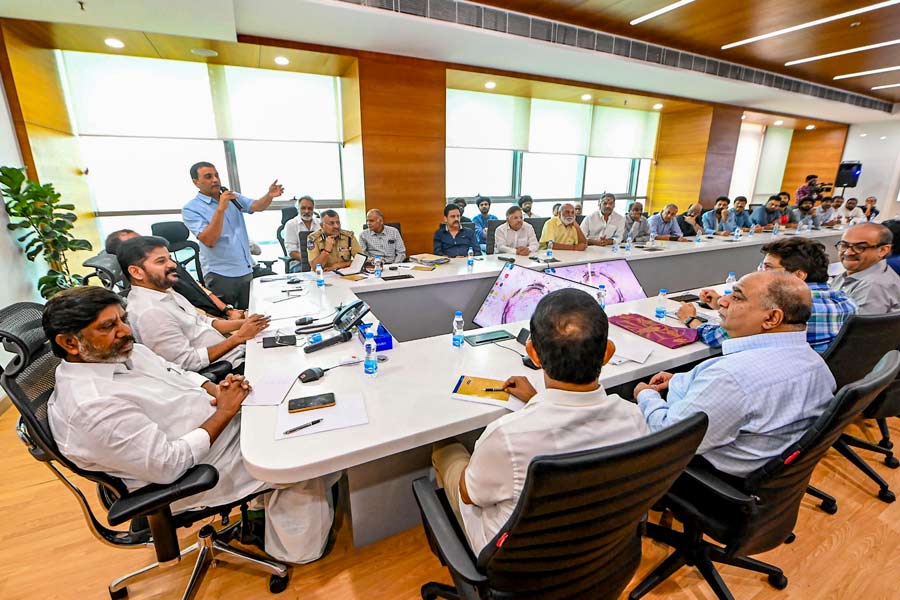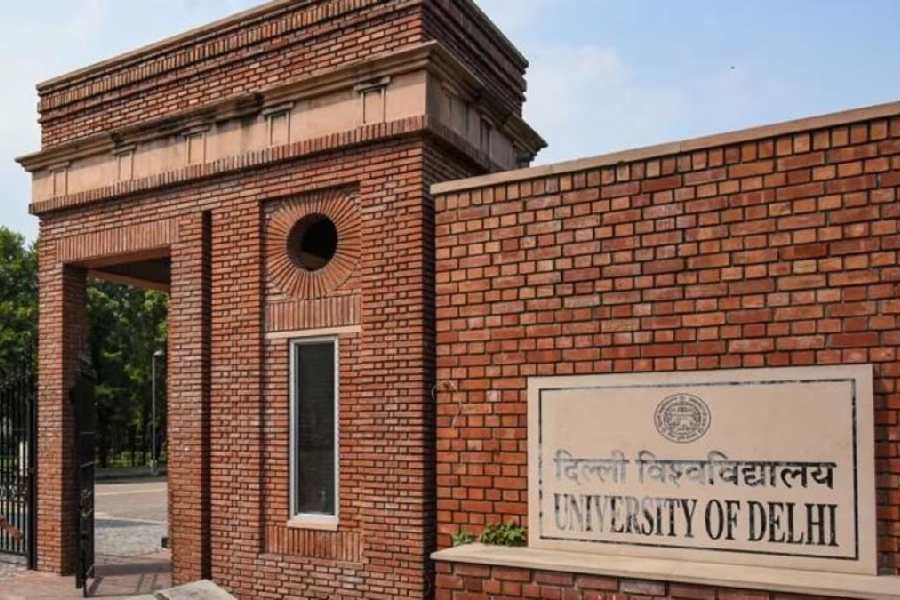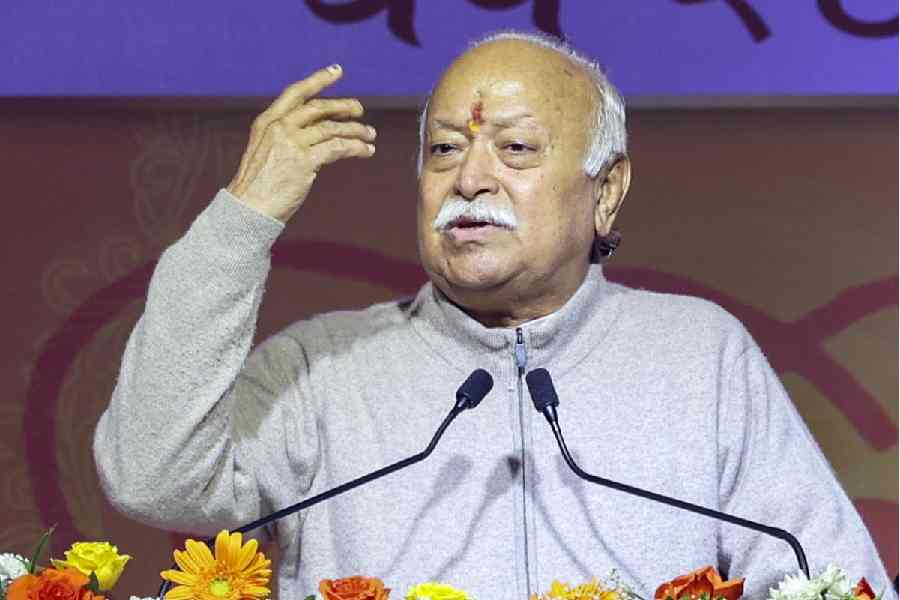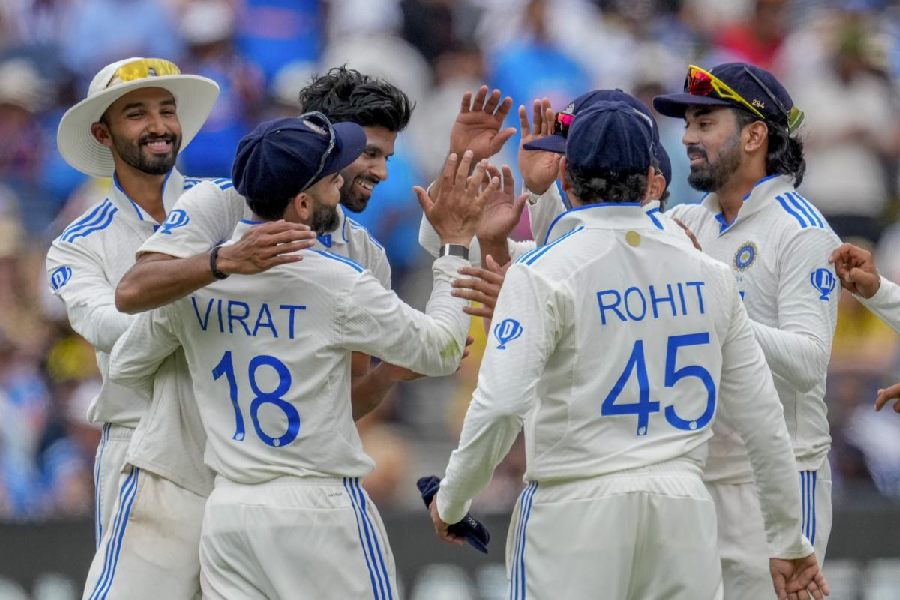Kerala High Court on Wednesday asked if state police were not going to investigate a BJP circular that has instructed party cadres to set off for Sabarimala with “certain things”.
The pointed query came as the court directed the state government to ensure that genuine devotees didn’t suffer because of the tight security the police have thrown around the hilltop temple to deter protesting Sangh parivar activists.
Sangh activists and some community organisations have been resisting the CPM-led state government’s decision to enforce the Supreme Court’s September 28 verdict that had lifted a ban on women of childbearing age from entering the shrine.
The state government had recently submitted some BJP circulars to the court to highlight the Sangh parivar’s purported intentions.
The circular that came in for special mention was the one the BJP’s Kannur district unit had issued some days back. It said “experienced people should head to Sabarimala with certain things”.
“What are these things?” the court asked the lawyer who appeared for the police. “Shouldn’t the police investigate this?”
The government had also submitted an internal memo the BJP’s state unit had issued on November 17, calling party leaders and workers to set off for Sabarimala in “maximum” numbers every day to “protect the tradition”.
The BJP has officially denied any political agenda in the agitation.
The court directed the government and the police to ensure that every genuine devotee gets an opportunity to complete their pilgrimage to the temple to Ayyappa.
It asked state advocate-general C.P. Sudhakara Prasad if two police officers — inspector-general Vijay Sather and superintendent Yathish Chandra, both non-Malayalis — followed Malayalam, the language in which devotees chant the name of the deity.
If they understood Malayalam, the court asked Prasad, why were they bent on preventing devotees from chanting the name at the “Sannidhanam”, the last stretch before the 18 “sacred” steps to the temple.
There have been complaints reported in the local media against the two officers that they were imposing restrictions on devotees at the Sannidhanam.
The police on Wednesday filed an affidavit explaining the need for tight security and citing intelligence reports about possible law-and-order situations as had been witnessed when the temple had opened for five days last month and for 29 hours on November 6.
Advocate-general Prasad told the court the protesters had obstructed and attacked genuine devotees both times, forcing the government to enforce prohibitory orders and tight security.
The BJP continued its push to Sabarimala, sending a central minister on Wednesday. Minister of state for finance and shipping Pon Radhakrishnan arrived at Nilakkal, 23km from the temple, with state party general secretary A.N. Radhakrishnan and a few others at 10.30am.
An altercation broke out soon as the police refused to lift the restrictions on private vehicles beyond Nilakkal.
When minister Radhakrishnan insisted on permission for everyone to travel in their own car, SP Chandra said: “If I allow everyone, traffic block will be there till Nilakkal. Then you will be held responsible. Are you willing to accept the responsibility?”
The minister replied: “I don’t want to take the responsibility.”
This angered A.N. Radhakrishnan, the general secretary, who raised his voice against the officer.
With the police refusing to relent, the central minister and his entourage took a state transport bus to Pampa, 5km from the temple, before trekking to the shrine.
The BJP has called for Chandra’s immediate suspension for “misbehaving” with the minister.
On his way back from the temple, the minister expressed disappointment at the officer’s behaviour. “Can the SP (superintendent of police) ask the same question to a state minister of Kerala?”
He urged the government to follow the high court order and make the journey smooth for all pilgrims. “This temple does not belong only to the people of Kerala, but to the whole country,” he said. “But sadly, genuine devotees are victims of these restrictions.”

